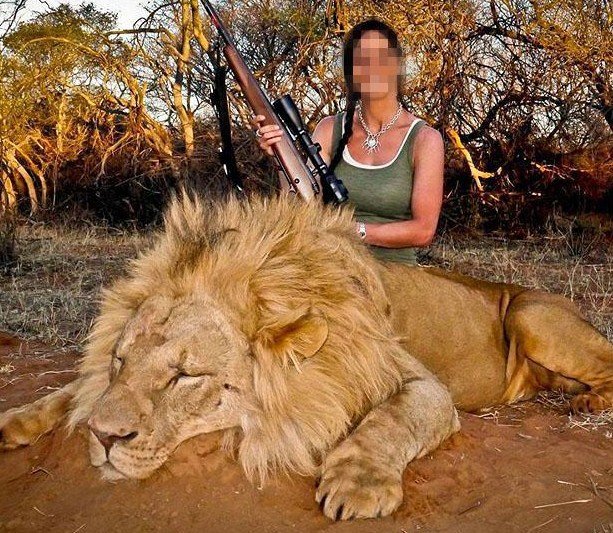Trophy hunting is the practice of killing wild animals for their body parts, such as horns, tusks, skins, or heads, as a form of recreation or status symbol. It is often portrayed as a way of conserving wildlife, supporting local communities, and promoting ethical hunting. However, there is a dark side to this blood sport that is horrific, cruel, and unsustainable.
The Impact of Trophy Hunting on Wildlife
Trophy hunting is one of the main threats to the survival of many endangered and vulnerable species, such as elephants, rhinos, lions, leopards, and giraffes. According to the International Union for Conservation of Nature (IUCN), trophy hunting is responsible for the decline of 43% of Africa’s lion population in the last 21 years. It also contributes to the poaching of elephants and rhinos, as it creates a demand for their ivory and horns in the black market.
Trophy hunting also disrupts the natural balance of ecosystems, as it targets the most healthy and genetically valuable animals, leaving behind weaker and less diverse populations. This can lead to inbreeding, disease, and loss of resilience to environmental changes. Moreover, trophy hunting can cause social and behavioral problems for the remaining animals, such as increased aggression, infanticide, and reduced reproduction.
The Impact of Trophy Hunting on Human Rights
Trophy hunting is not only harmful to wildlife, but also to human rights and dignity. Trophy hunters often exploit the poverty and corruption of the countries where they hunt, paying bribes, evading taxes, and violating laws and regulations. They also disrespect the cultures and traditions of the local people, who often have a sacred and spiritual connection to the animals they share the land with.
Trophy hunting also fails to deliver the promised benefits of conservation and development to the local communities. According to a report by Economists at Large, only 3% of the revenue generated by trophy hunting in Africa reaches the rural people who bear the costs of living with wildlife. The rest goes to the hunting operators, landowners, and government officials, who often use it for personal gain or political agendas. Furthermore, trophy hunting deprives the local people of the opportunity to benefit from more sustainable and ethical forms of wildlife tourism, such as photo safaris, which generate more jobs, income, and education.
The Need for a Global Ban on Trophy Hunting
Trophy hunting is a barbaric and outdated practice that has no place in the 21st century. It is incompatible with the values of compassion, respect, and justice that most people share. It is also contrary to the goals of the United Nations Sustainable Development Agenda, which aims to protect the planet, end poverty, and ensure peace and prosperity for all.
Therefore, there is an urgent need for a global ban on trophy hunting, as well as a crackdown on the illegal trade of wildlife products. This would not only save the lives of millions of animals, but also protect the rights and interests of the people who depend on them. It would also send a clear message that the world does not tolerate the lust of the blood sports trade to kill beautiful beasts for fun.

